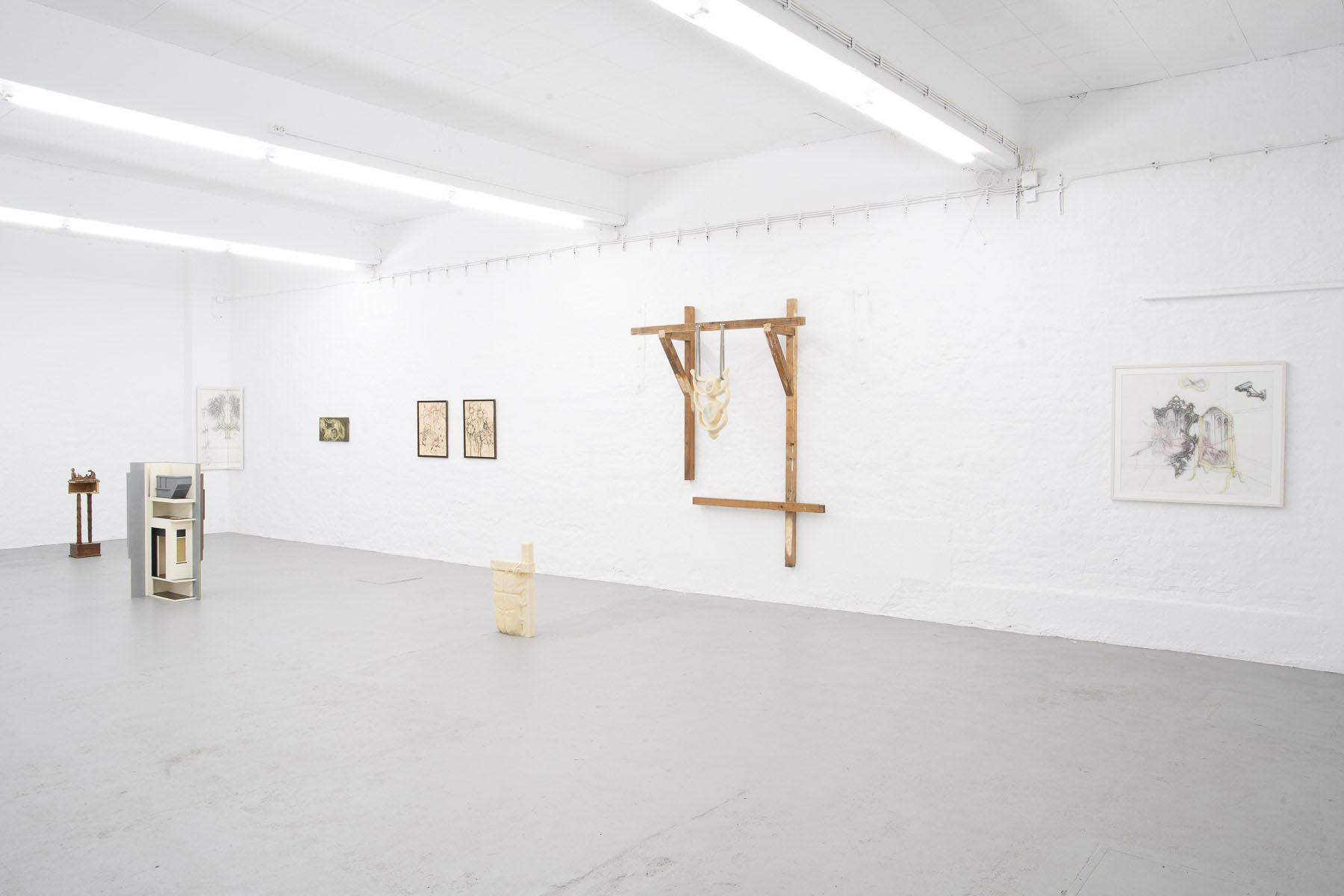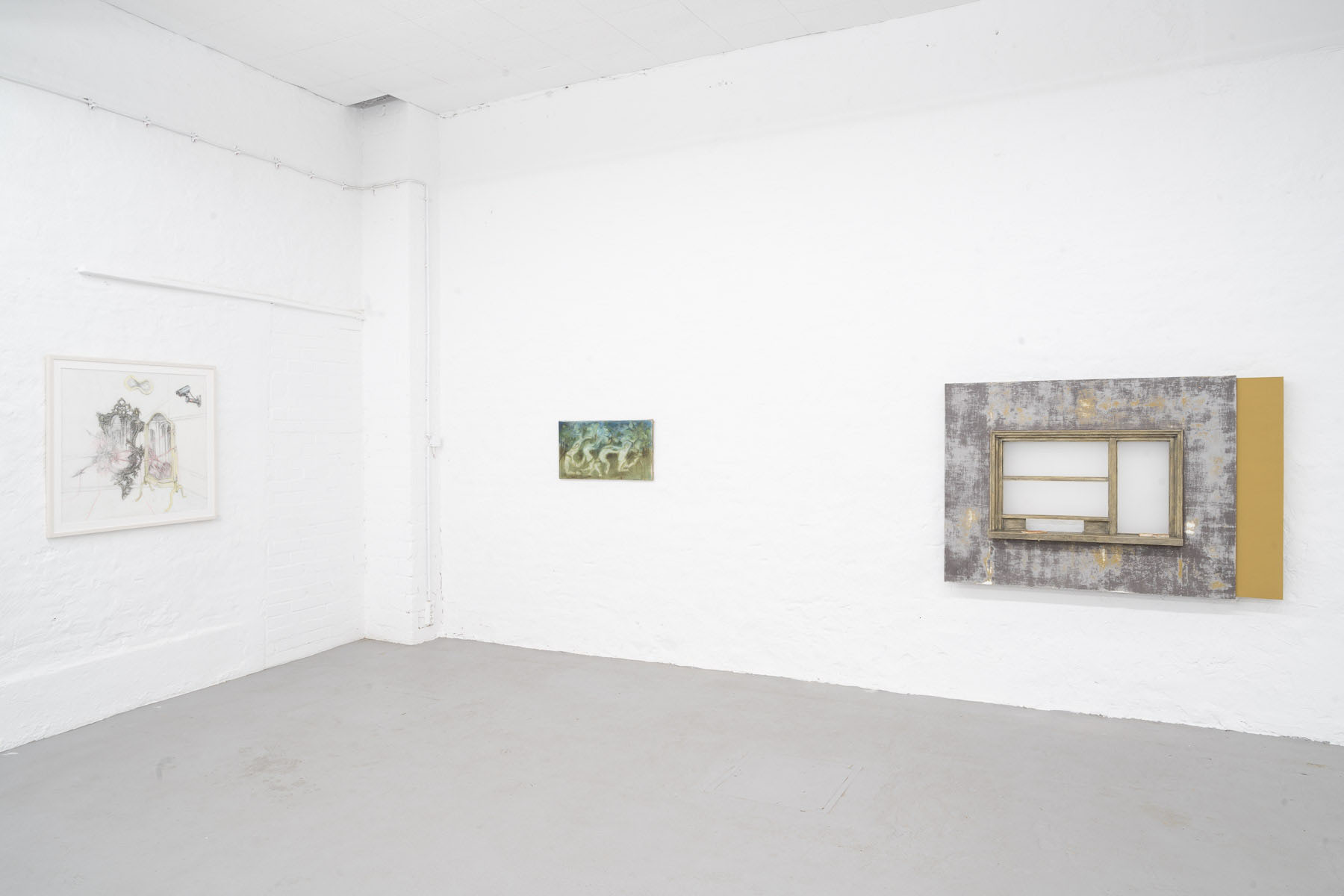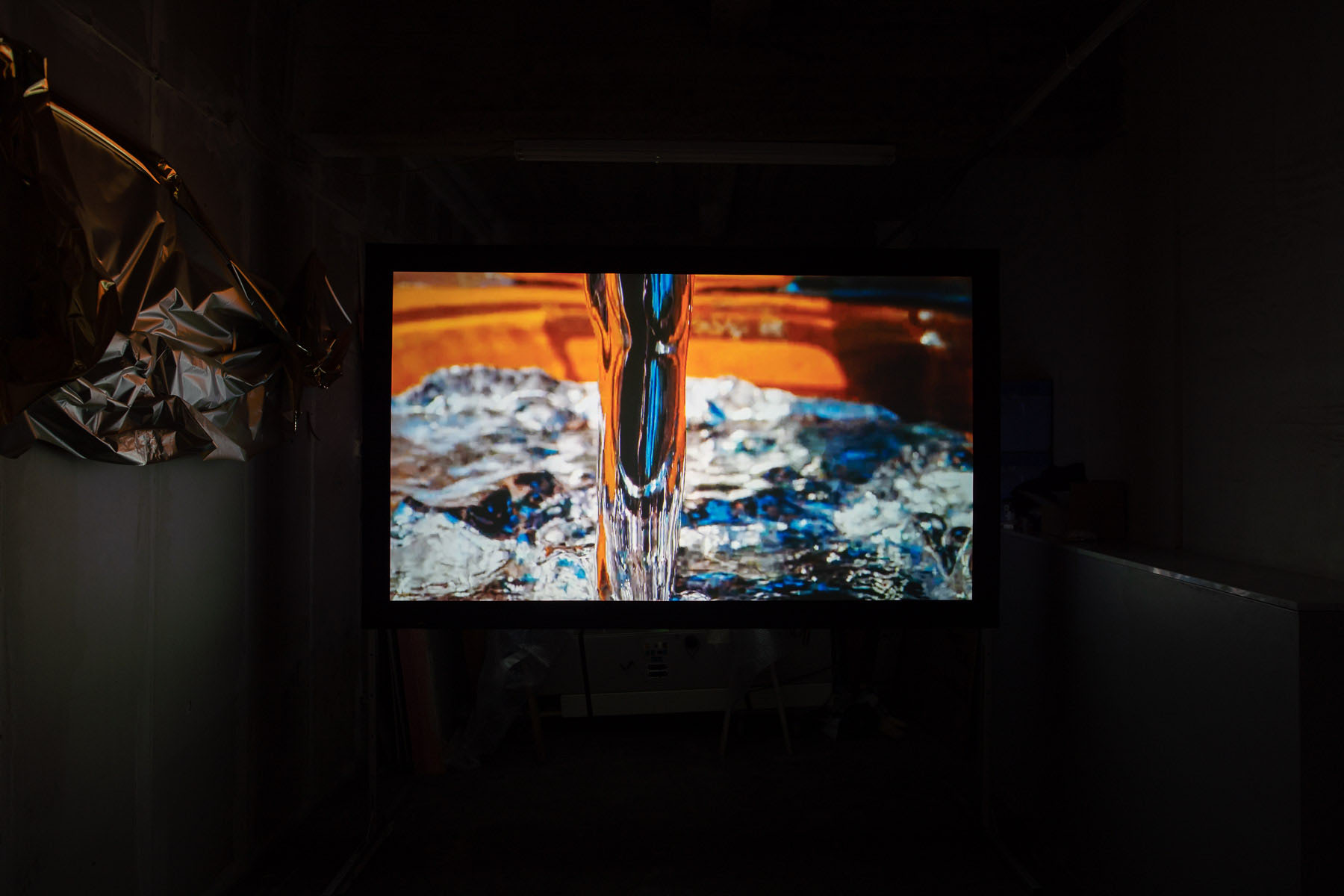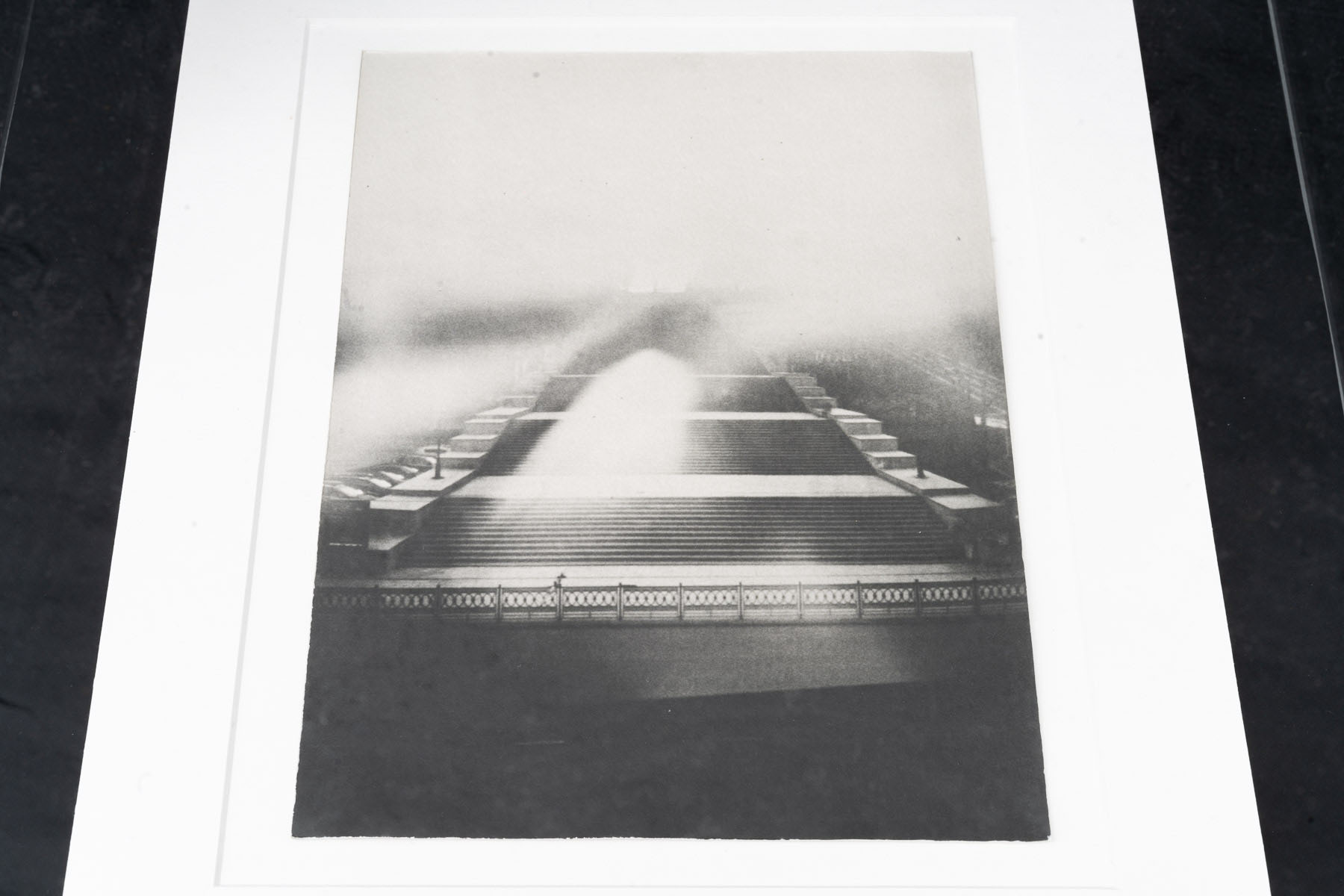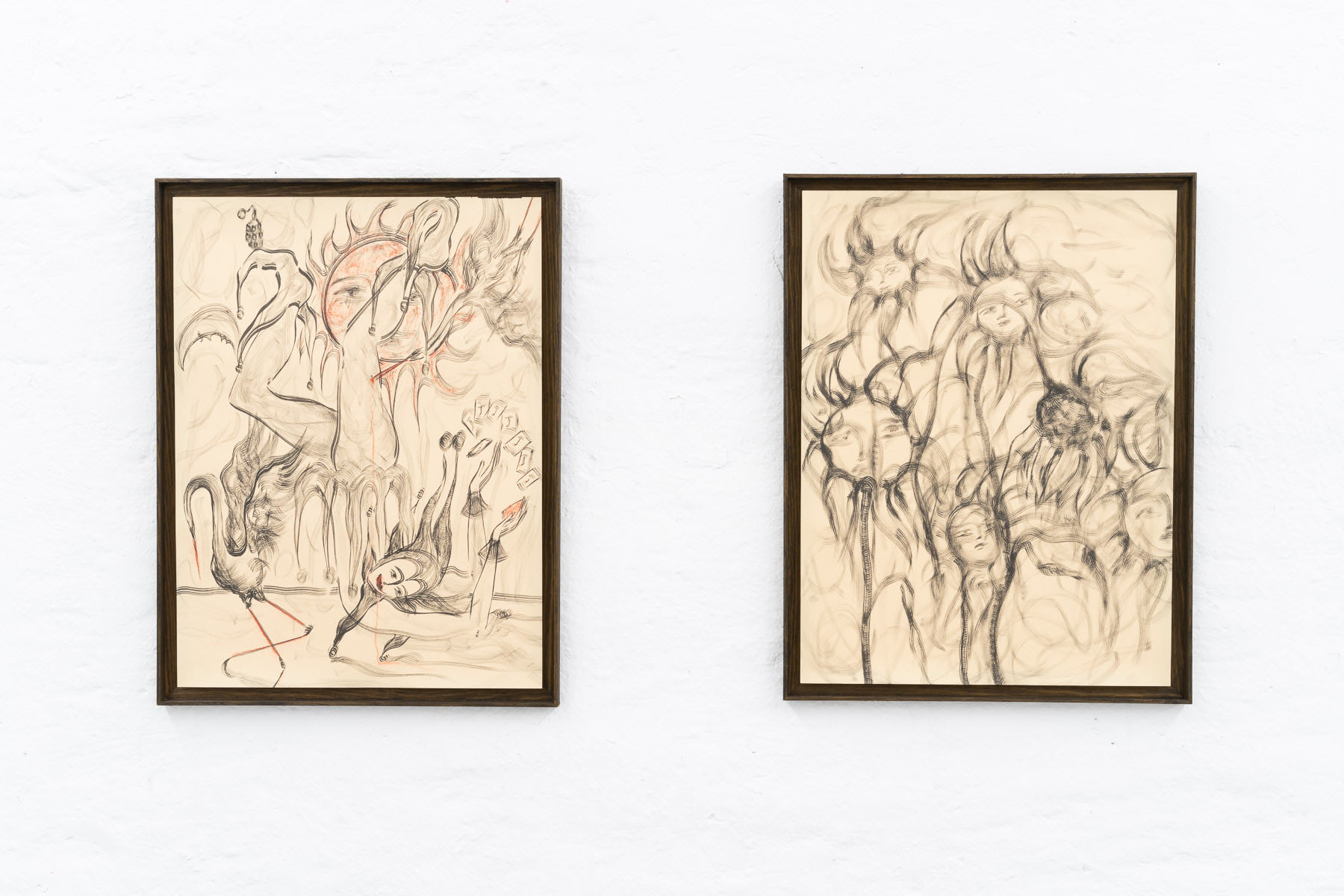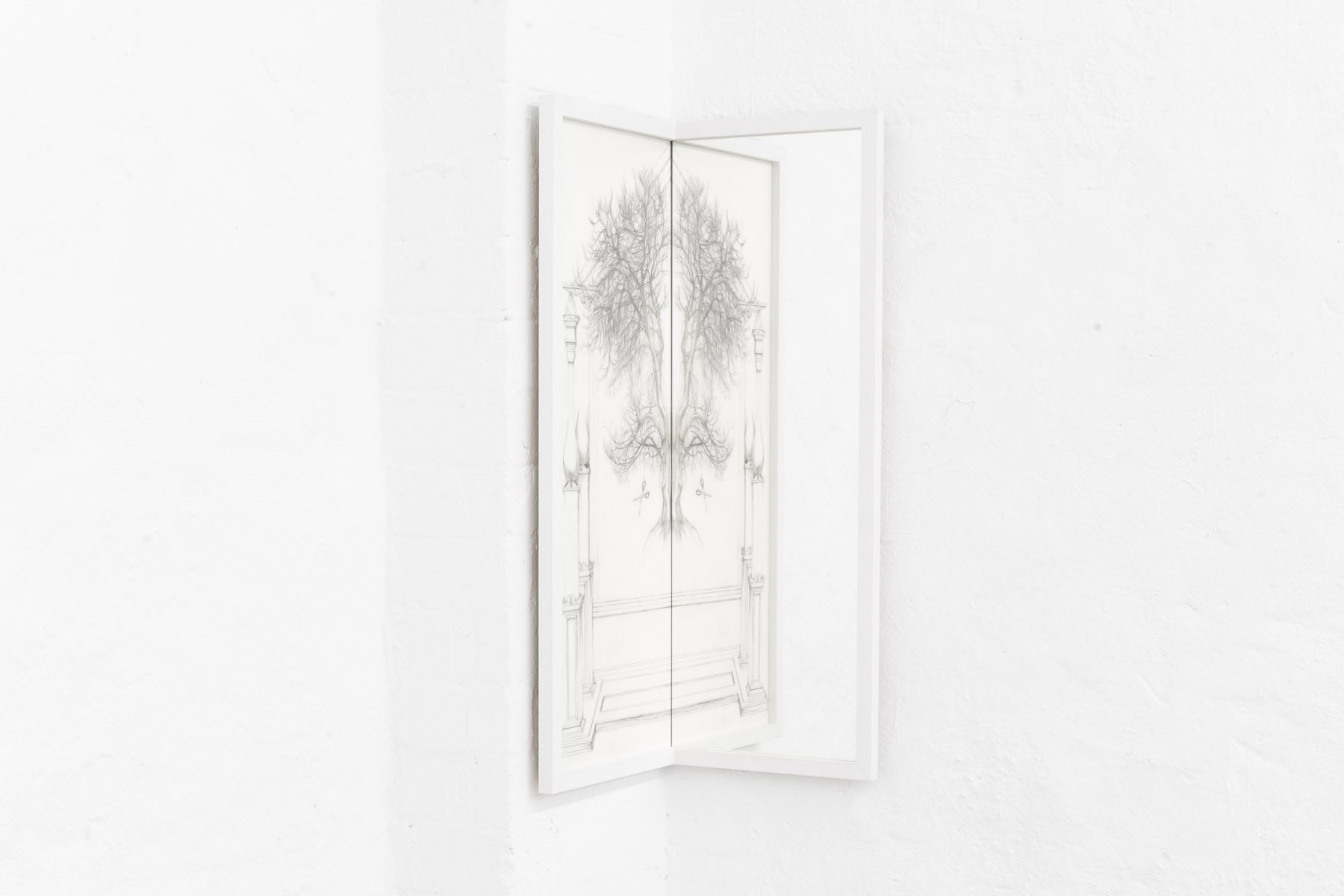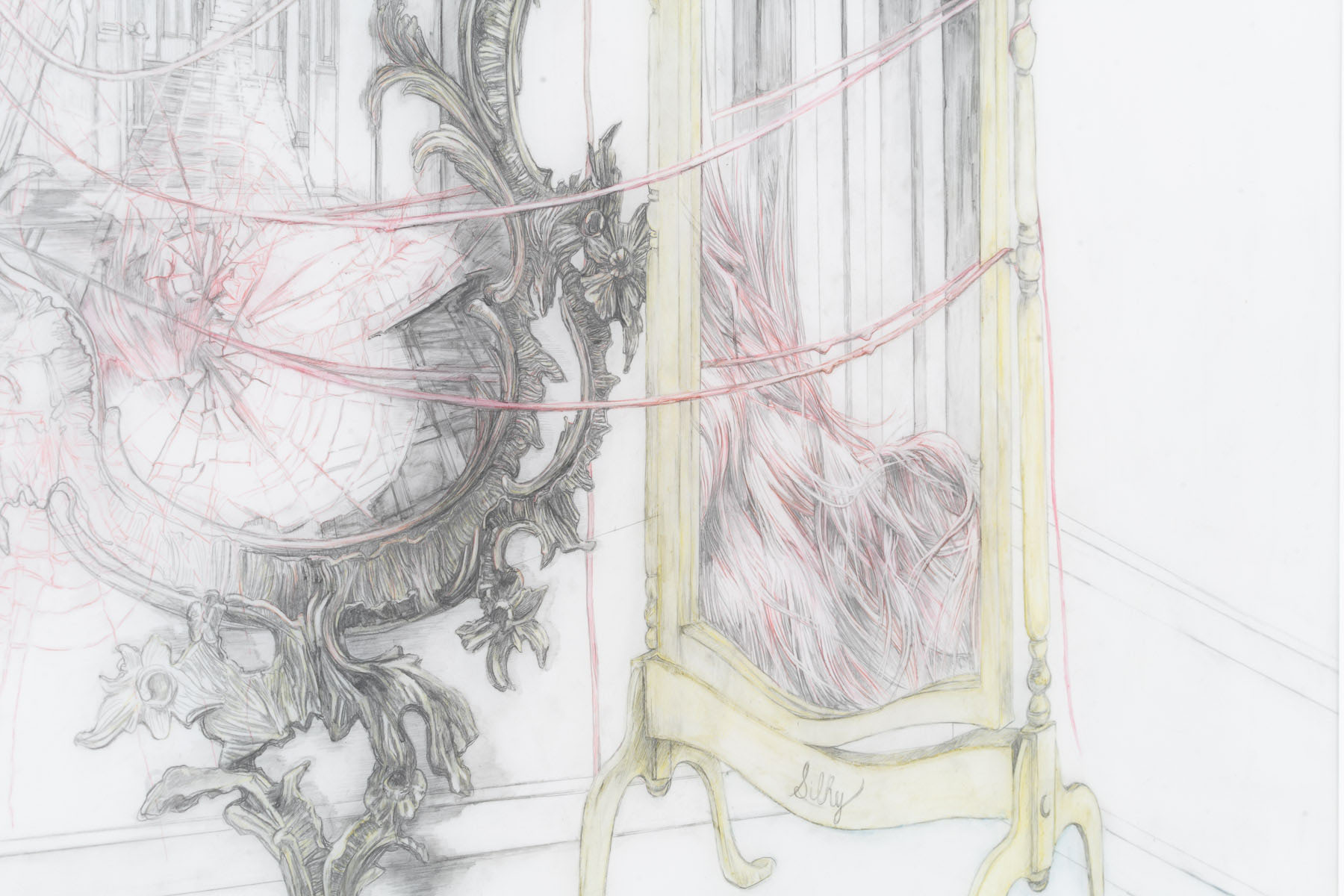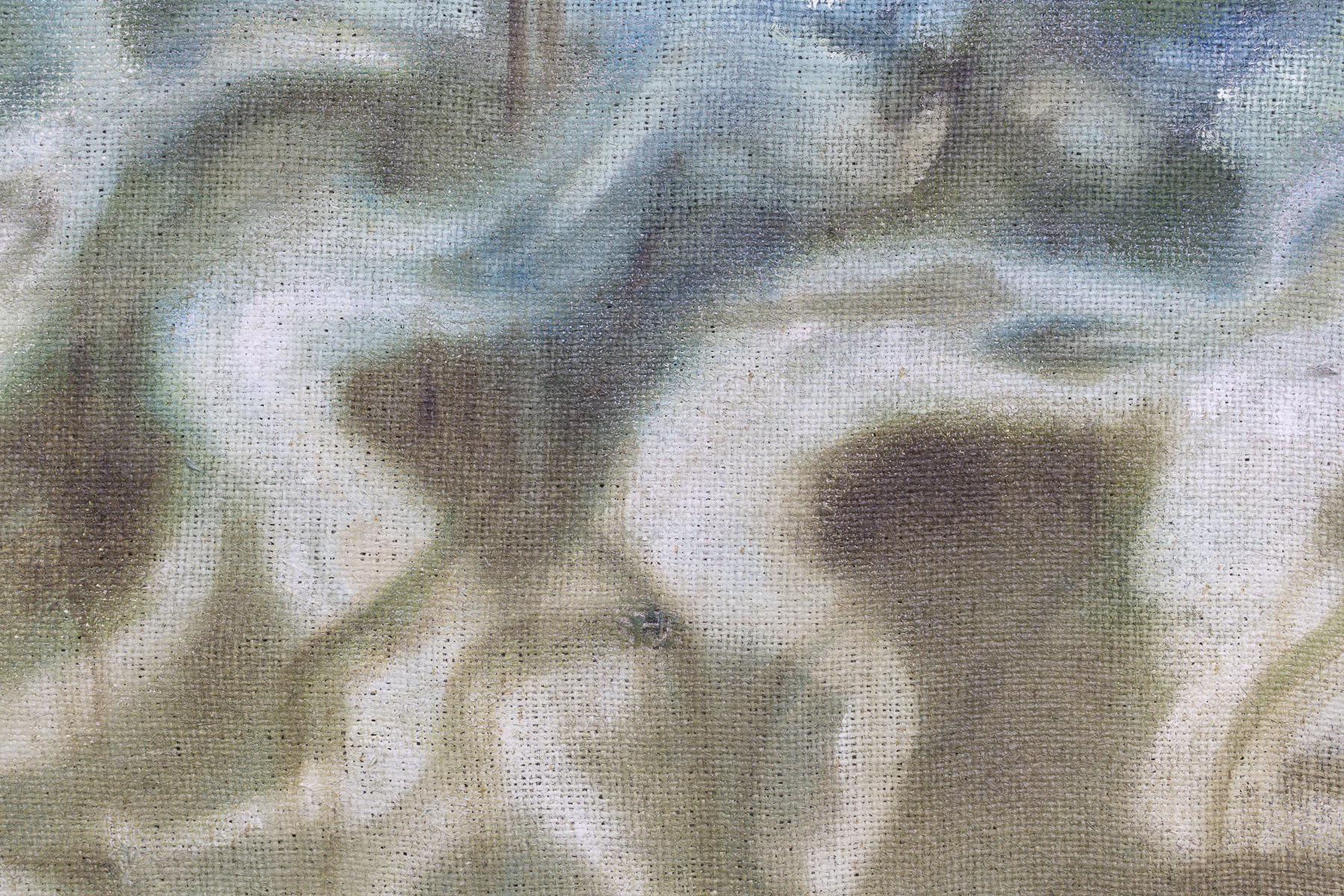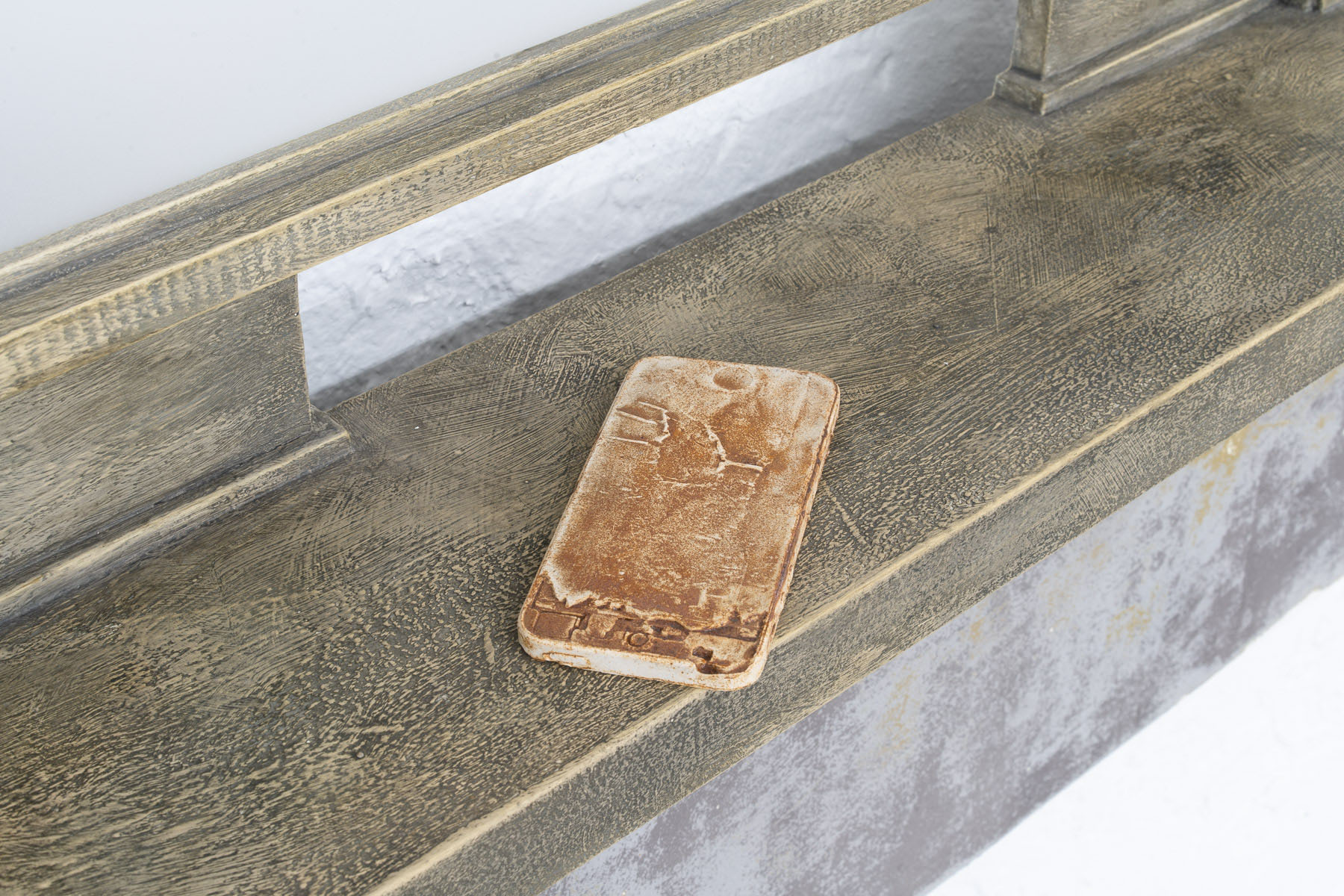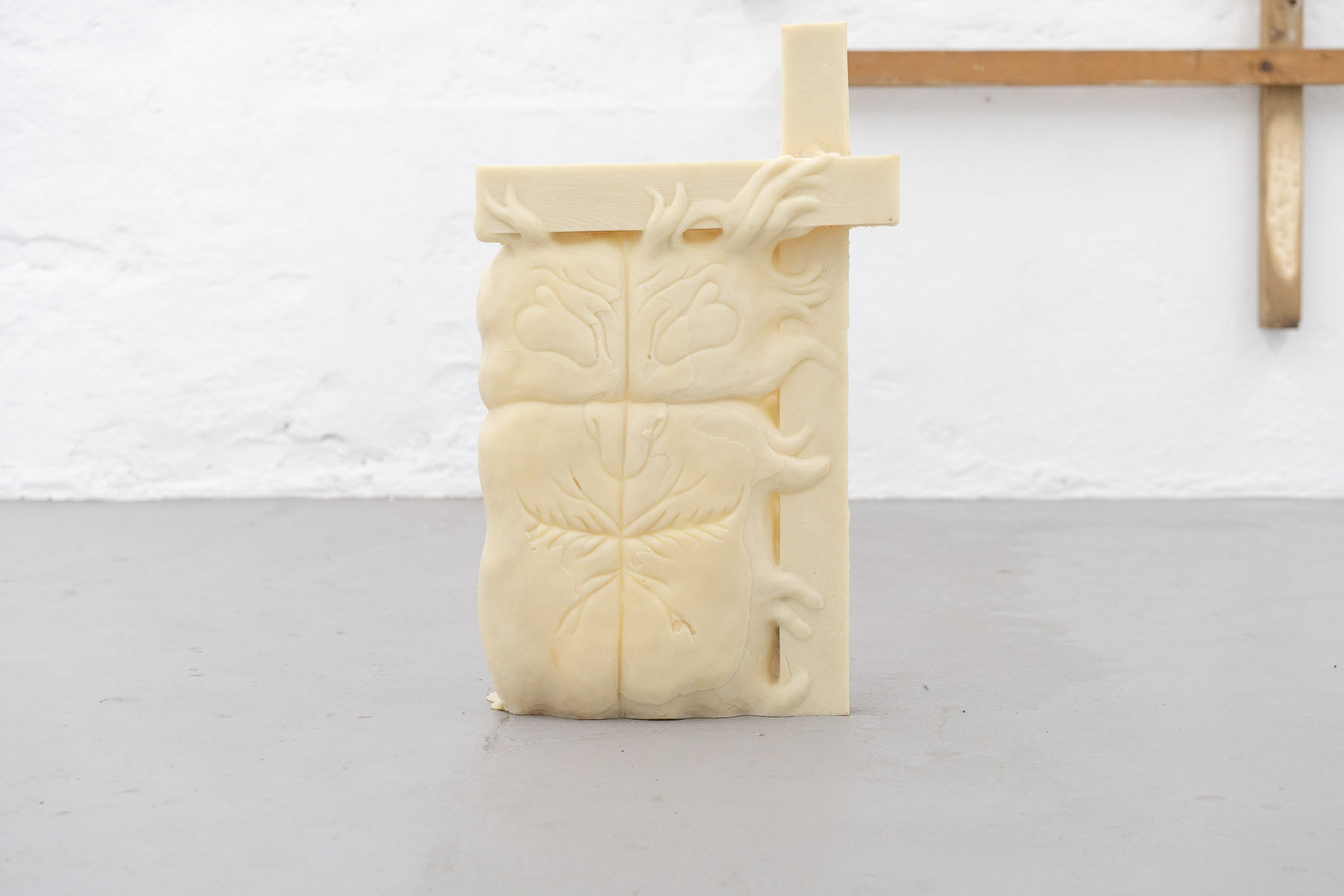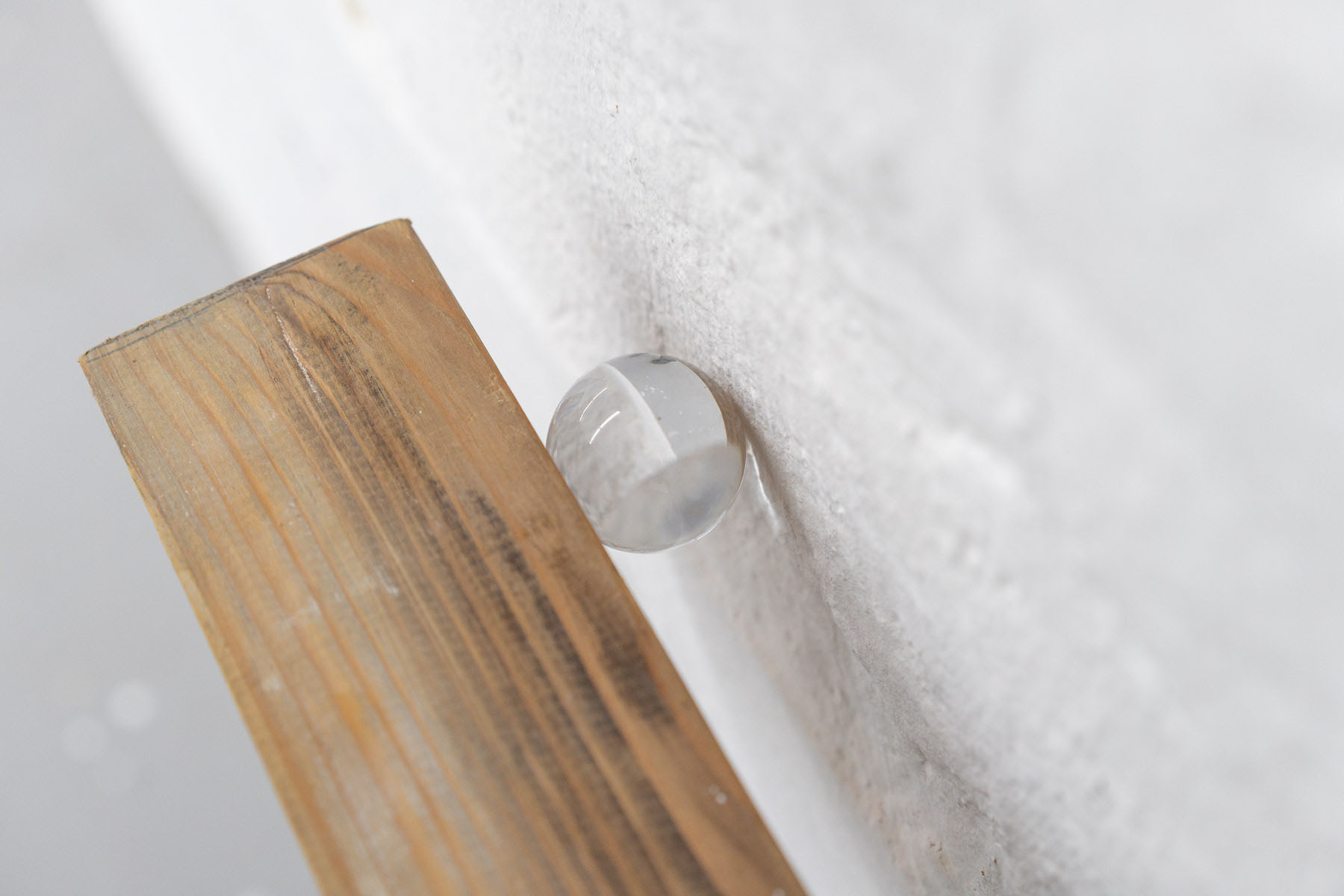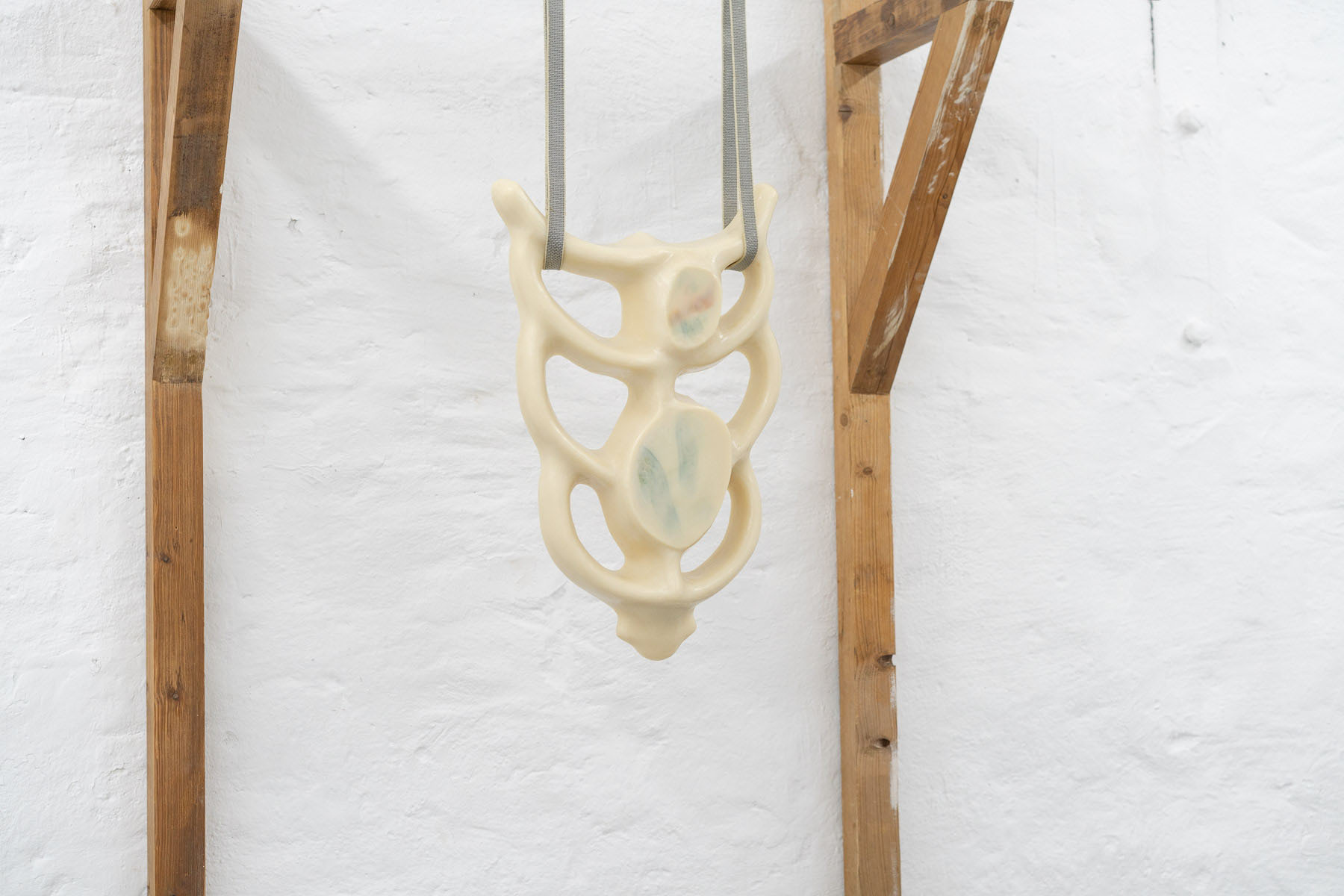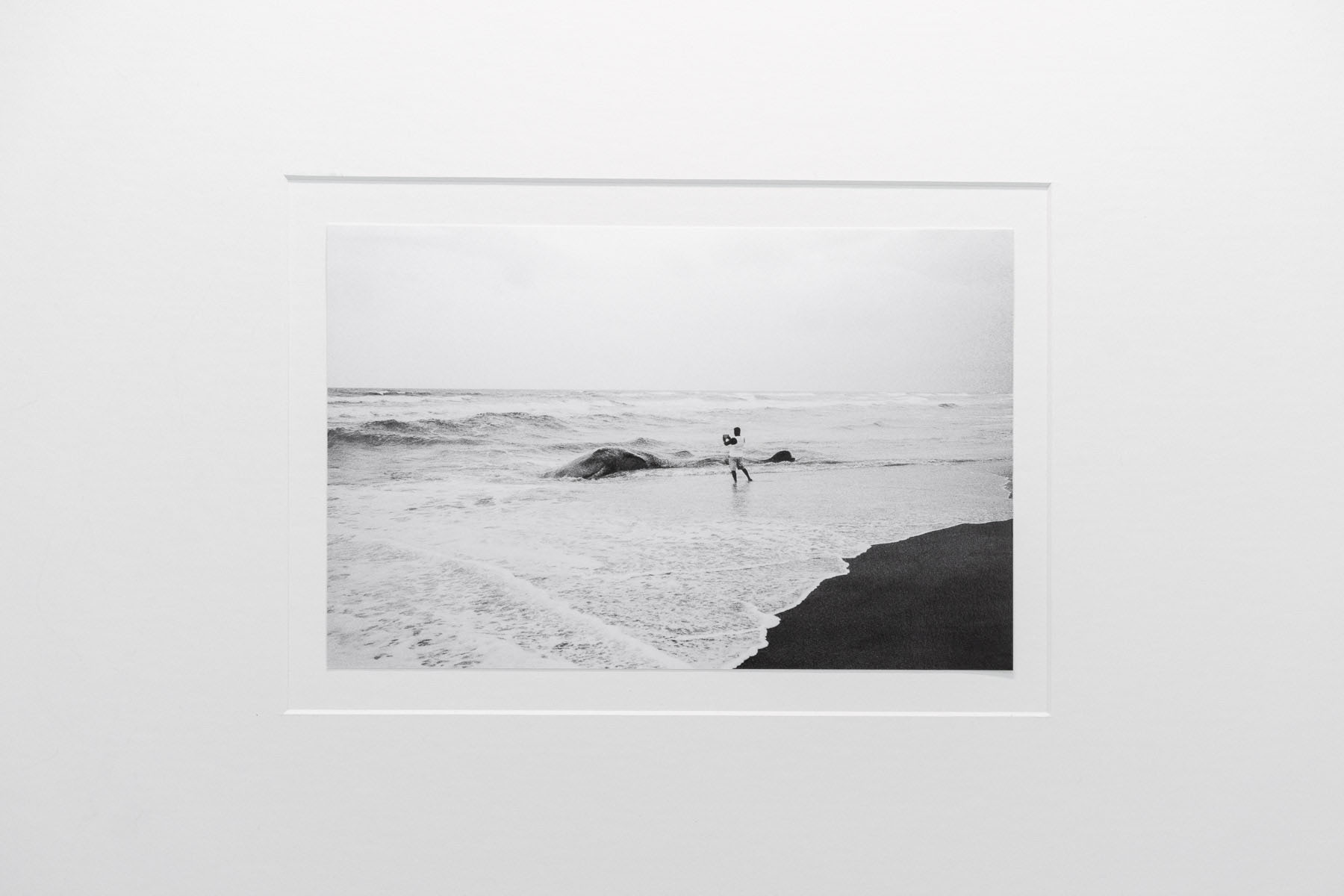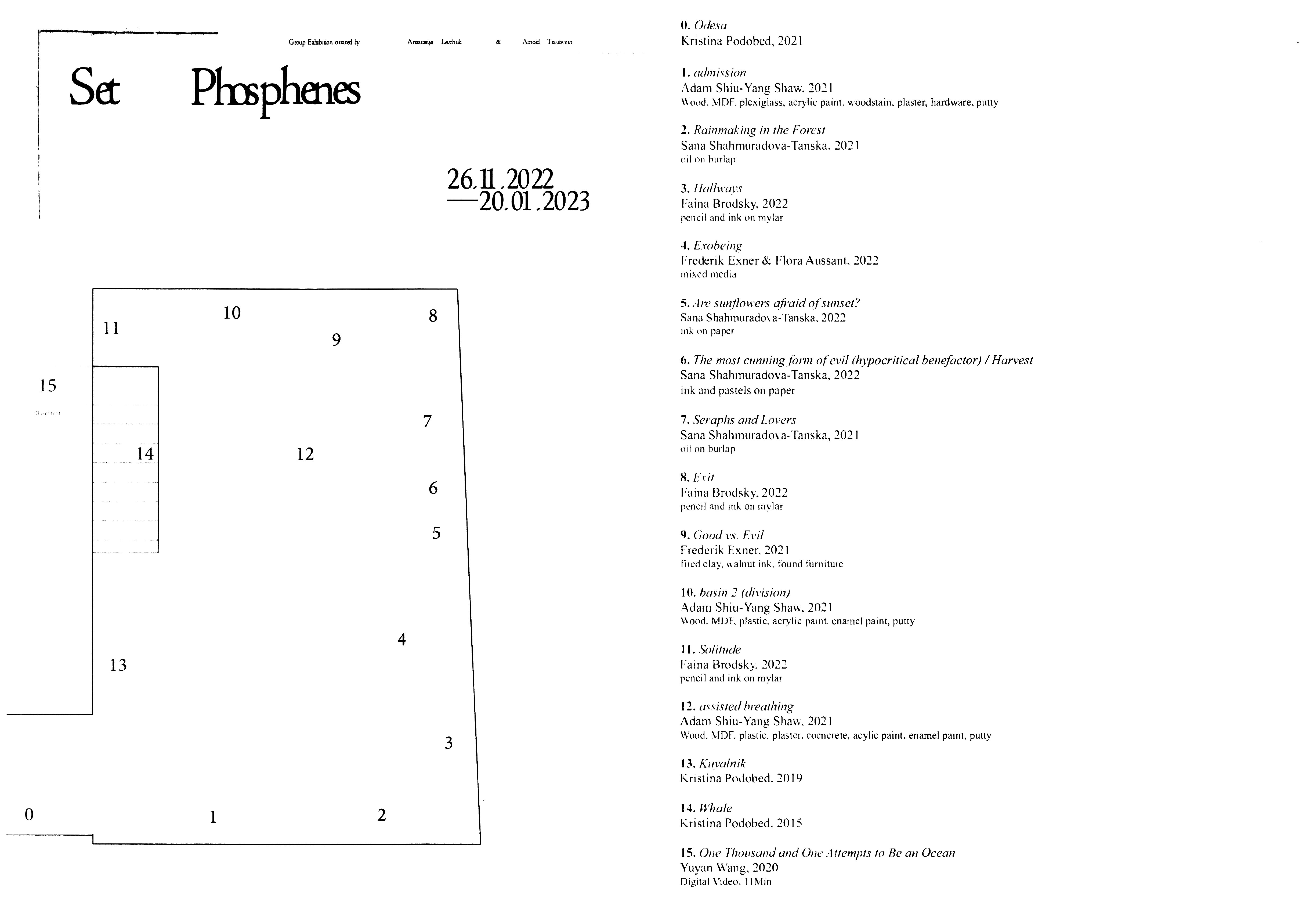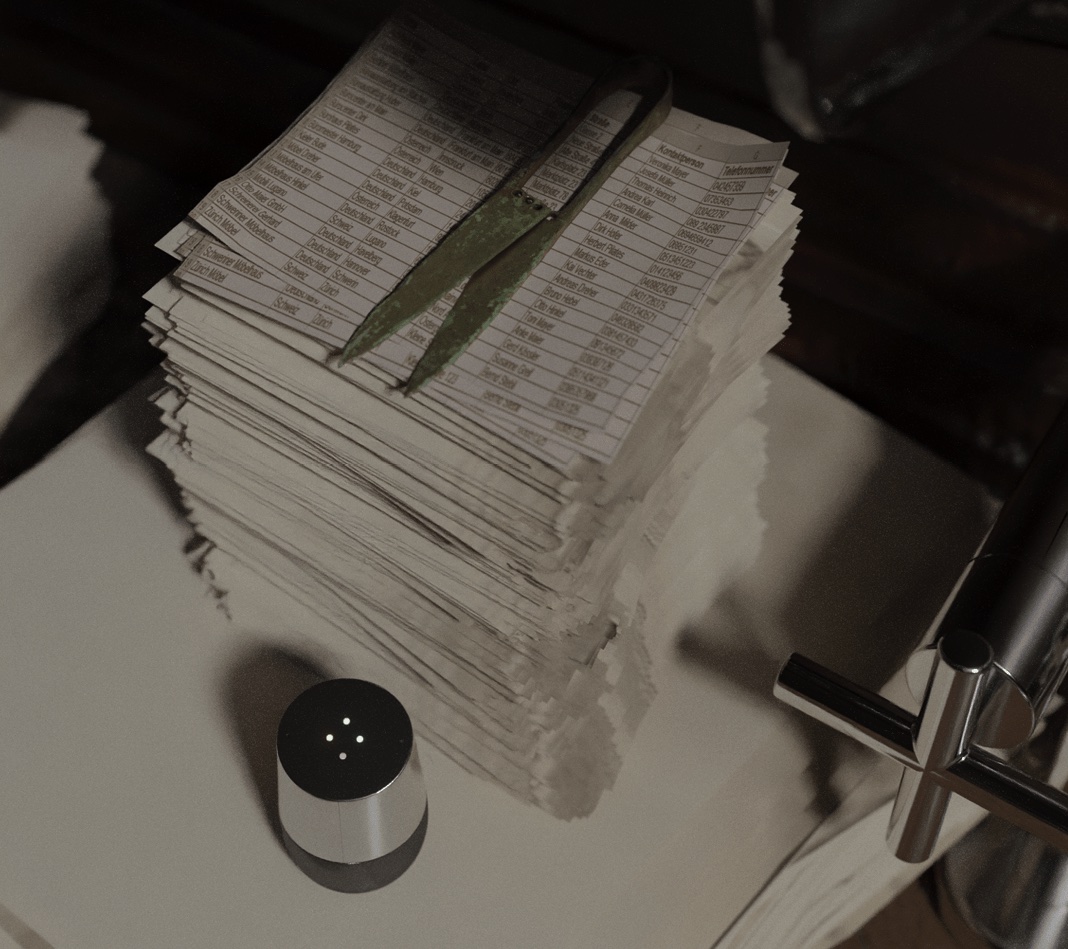
SET PHOSPHENES
by Nastya Levchuk , Arnold Trautwein
Opening: 25/11/2022 19:00
On view till: 20/01/2023
A group show about flawed remembrance
with:
Frederik Exner & Flora Aussant
Sana Shahmuradova-Tanska
Wang Yuyan
Some places live on in our memory long after we have abandoned them. In hindsight, memories give new meanings to the things we experienced. It is this interplay of what once was and what we now feel that drives our nostalgia for those places. But what happens when they fully disappear in a material sense, leaving behind nothing more than remembered fragments? Neurologists identify the loss of memory as a result of severed neurological paths. Memories may still reside in our brains, but we have no way of accessing them. This is when our imagination subconsciously assumes control, filling in the gaps. As if disturbed by phosphenes - those ephemeral apparitions of light, induced by migraine or increased pressure on the eyeball - our recollection is distorted and transformed into new contexts.
Set Phosphenes explores spaces and objects, which linger in between reality and the assumptions about it, in the subjective distortion that accompanies this phenomenon in the context of memory. The exhibited works range from bricolage-like installations, in which interior and exterior architecture are merged, to images that examine the forgotten and archaic, refusing to be assigned to
an epoch.
Additional program:
Sunday, November 27th 2022, 18h
LOSING TRACK Film program
Filmwerkstatt Düsseldorf
Birkenstraße 47
40233 Düsseldorf
When we find ourselves in an ongoing chain of catastrophes, we stumble from recently deserted places into a flawed state of reorientation. Upheavals hit us so quickly that we don't have time to reflect. This film program revolves around this state of a flowing shift in reality, which converts the spaces we experience to mere intermediate steps of remembrance.
‘Constant’, Sasha Litvintseva & Beny Wagner, 2022, 40 Min
‘NO!NO!NO!’, Mykola Ridnyi, 2017, 21 Min
‘Wunderkammer 10.0’, Yelim Ki, Soyun Park, Info Jung, 2021, 31 Min
Date: To be announced.
Live Talk with V. Vale (San Francisco, USA), at Studio for Artistic Research
In a panel discussion with V. Vale we'll talk about the history of his publishing house RE/Search (est. 1977), and how the recollection and archiving of the local underground scene in San Francisco may transform the essence that it had at its heyday. RE/Search specializes in magazines and books that form an urban anthropological archive and oral history project.
Open by appointment: contact@studioforartisticresearch.com
Prelude:
Ode to Odessa
t6 D43 -> III s6 t S D43 t
The wind blows dust from the prairie to the Black Seа. I was eight years old when my family moved to Odessa. Looking back, I seem to have felt a deep melancholy, when my gaze wandered around the giant stalinist apartments filled with a faint smell of fried eggplants and old wallpapers.
I spent my youth in the city that lives in its past. Odessa was created in the 18th century on dry fields in sparsely vegetated areas. Тhat's why all tree seeds were brought from different parts of the world. Today the city is full of classical palaces, belle epoque nymphs, statues with empire waists and orthodox onion domes. This place became a mythical creature.
We spent a lot of time in the old town and at the maritime station. My music boarding school was located right next to a monument to Catherine the Great, which was destroyed in 1920 after the October Revolution and replaced with a monument to mutinous sailors. After the collapse of the Soviet Union, Catherine’s statue was rebuilt once again, in its original form. Today there is a debate to re-demolish it. Located nearby, the Potemkin Stairs lead down to the sea. They’re named after the crew of the historic Battleship Potemkin. A famous scene from Sergei Eisenstein’s eponymous film shows the slaughter of hundreds of civilians who find themselves trapped between a descending tsarist militia above and the warring Cossacks below.
It’s been a while since I left. Leaving for good makes a place disappear in a bothersome way, as if you shelve it in a state frozen in time, somewhere you can never really return to. But there will be memories that hover in front of our eyesight like uncanny phosphenes, flickering, affecting the seen image, swaying the way we remember.
Since I left Odessa, I feel homesick. This strange feeling can be omnipresent, following you around, even to places where you think you feel at ease. For centuries, homesickness had a firm place in medical-psychological literature under the technical term nostalgia. It was considered a morbus genuinus, an illness in itself, caused by the loss of familiar surroundings, the air quality or other environmental influences.
It appears to be a trick of the mind, something comforting to snuggle up to when the present day seems intolerably bleak. I want to return to this place, to cling to my fleeting memories. But when I am there - I want to leave immediately.
Exhibition 3D Image: Alexander Pannier Design Typography: Anne Dietzsch
In cooperation with:
Filmwerkstatt Düsseldorf
Supportet by:
Kunststiftung NRW
Kulturamt Düsseldorf
Festool Germany
SIGMA System Audio-Visuell
